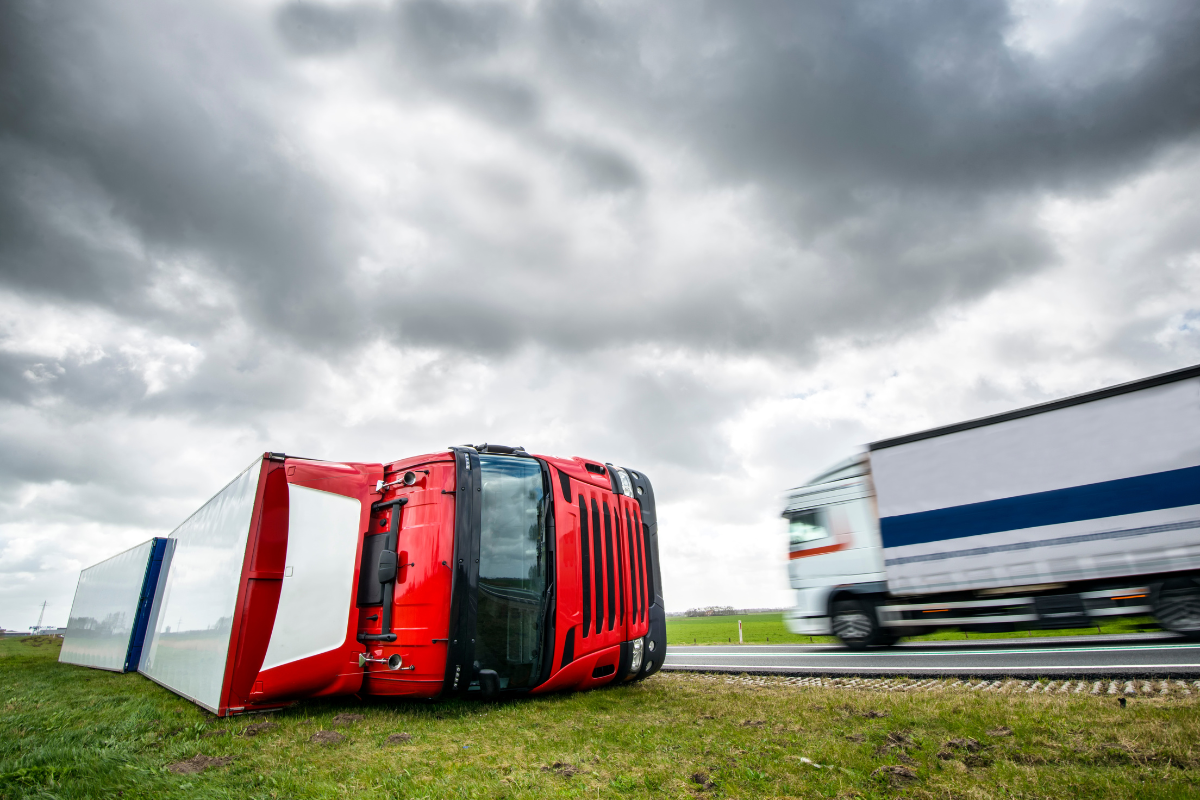When you’re on the highway, you might see big semi-trucks pulling trailers. These trucks are important for moving goods, but they can also be very dangerous, especially in jackknife accidents.
A jackknife truck accident happens when the trailer swings out, making a sharp “L” or “V” shape with the truck. These accidents are scary and can cause serious injuries, damage to vehicles, and even deaths. Knowing how these accidents occur and how to avoid them can help save lives and prevent harm.
If you’ve been in a jackknife accident, getting advice from a truck accident lawyer can help you deal with the legal issues and get fair compensation.
Let’s look at what causes these accidents and how we can stop them.
What Causes Jackknife Accidents?
Jackknife accidents can happen for many reasons, often due to a mix of issues. Here are some common causes:
1. Braking Problems
Sudden braking or not using the right braking method can make the trailer skid. This can lead it to swing out of control, especially on wet or slippery roads.
2. Speeding
Driving too fast makes it harder for a truck driver to react quickly to changes in traffic. If the driver has to brake suddenly, it can cause the trailer to lose balance and swing out.
3. Uneven Cargo
When the cargo isn’t loaded evenly, it can make the trailer unstable and more likely to tip or sway. This can result in a jackknife, especially during sharp turns or quick stops.
4. Tired Drivers
Driving for a long time can make drivers tired, affecting their reactions and decisions. A sleepy driver might make mistakes like overcorrecting or braking too hard, leading to a jackknife.
5. Weather Conditions
Rain, snow, ice, or fog can drastically reduce visibility and traction on the road. These conditions increase the likelihood of losing control of the truck, making jackknife accidents more common.
6. Improper Trailer Maintenance
Poorly maintained trailers, such as those with worn-out tires or faulty suspension, can cause instability. Mechanical failures can lead to sudden shifts in the trailer’s position, causing it to jackknife.
How to Prevent Jackknife Accidents
Jackknife accidents can be serious, but many can be avoided with simple steps. Here’s what truck drivers, companies, and other drivers can do:
1. Learn Proper Braking
Truck drivers should know how to use anti-lock brakes and other safety technologies. Anti-lock brakes help keep control during sudden stops. Drivers should also slow down gradually, especially with heavy loads.
2. Keep Safe Speeds
Speed limits are there for safety, and it’s especially important for truck drivers to follow them. Driving slower in bad weather or on winding roads can help prevent jackknife accidents.
3. Load Cargo Correctly
Trucking companies should have clear rules on loading cargo. Checking the balance of the load and using systems to distribute weight can make a big difference.
4. Combat Driver Fatigue
Taking regular breaks and tracking driving hours can help prevent tiredness. Some trucking companies use electronic logging devices (ELDs) to ensure drivers stick to regulated hours.
5. Regular Truck Inspections
Regular checks are important to avoid mechanical issues that can lead to jackknife accidents. Inspecting brakes, tires, and suspension systems before trips can find problems early.
Conclusion
Jackknife truck accidents are serious, but they can be avoided. Understanding the causes, like braking issues, speeding, and tired drivers, can help everyone take action to prevent them. Good training, regular truck checks, and following safety rules are key to staying safe.
If you’ve been in a jackknife accident, know that you can get support. A truck accident lawyer can help you through the legal process and protect your rights. By raising awareness and taking precautions, we can all help keep our roads safer.

